Introduction
The answer to my lifelong search for meaning and happiness in times of suffering seems surprisingly simple: To live a meaningful life regardless of circumstances is to have the courage and responsibility to become what you were meant to be, to become your best self as a gift to others.
Just as birds are born to fly freely in the skies, human beings are born to belong to loving relationships, develop their potentials, and serve the greater good. In a nutshell, this is nature’s way for positive mental health.
This discovery is neither a stroke of genius, nor an act of serendipity, but the result of more than 50 years of laborious research to answer an existential question that has troubled me since my teenage years: What is the point of living, when life is so painful? Is there any meaning in life, when it ends in death after a long struggle?
I am grateful that I was able to answer in the affirmative by discovering the intrinsic value and meaning of life in healing and thriving. This truth has always been there across history and cultures, but it has been forgotten due to people’s arrogance in scientific progress and their greed and selfishness in the pursuit of material gain, resulting in much human suffering.
Strictly speaking, I have only rediscovered the truth that has always been hidden in us—we need to return to our spiritual roots and live in harmony with the better angels of human nature.
More specifically, we need to return to the spiritual laws or timeless universal values that have governed the human heart since time immemorial, such as taking responsibility for our lives, having the courage to face the hardships of life, having the humility to know our limitations and trust in the creator of this mysterious universe, choosing what is meaningful and right rather than what is pleasurable and expedient, persisting in spite of obstacles until our life missions are completed, and loving our neighbours as we love ourselves.
This eureka moment came to me only recently, when I suddenly realized that all my research and all the available empirical evidence on wellbeing can be boiled down to natural rules, which are all within our control and can be awakened and cultivated without expensive professional help.
This is an important discovery because the present healthcare system is neither equipped for nor financed to cope with the current mental health crisis; we need to resort to more natural and less costly methods. Future research will determine whether the practice of such timeless universal values is more effective in enhancing positive mental health than any single therapeutic modality.
The Beginning of a Different Kind of Positive Psychology
Born with a brooding and melancholy temperament into a country torn by World War II and civil war, I was used to “eating bitterness” (吃苦). To me, positive psychology has always meant overcoming and transforming pain and suffering. Therefore, when I went to graduate school in the late 60s, I chose to do research with Abram Amsel at the University of Toronto because he was internationally known for his research on frustration effects.
At the time, when Martin Seligman was doing research on learned helplessness as a result of noncontingent shock, Amsel and I set out to discover how animals could become persistent, resourceful, optimistic, and courageous through overcoming noncontingent aversive events (Wong, 2019a). This animal model of positive psychology became the foundation of my vision of positive psychology—we can achieve sustainable healing and flourishing only through confronting suffering. This suffering-inspired positive psychology was later identified as existential positive psychology (Wong, 2009) or PP 2.0 (Wong, 2011) in order to differentiate it from Seligman’s (2002) happiness-oriented positive psychology.
At the present, Martin Seligman’s positive psychology is the most popular growth area in psychology, with new books coming out almost every week. However, in the tumultuous 21st century, PP 2.0 may be the answer to the current mental health crisis, a crisis marked by rising rates in depression, addiction, and suicide (INPM, 2019).
In 2000, right after the tragic event of 9/11, I presented my paper on Viktor Frankl’s Tragic Optimism at the first International Summit of Positive Psychology in Washington at the Gallup Center. As the lone voice for a radically different positive psychology (Wong, 2017), my message on staying hopeful through transforming the horrors of life did not receive much attention at the conference, but it was then that I received the epiphany that the time for PP 2.0 had arrived.
An Illustrious Company
Blessed with a long life, my search for meaning and happiness in suffering has benefitted from many people in research and applications. With regard to broad popular appeal, the most important figure in existential positive psychology is Viktor Frankl. He discovered the power of meaning in suffering while at a Nazi death camp. His book Man’s Search for Meaning (Frankl, 1985) has touched millions of people.
The second major contributor to existential positive psychology is a Christian psychiatrist named Dr. M. Scott Peck. His bestseller The Road Less Traveled (Peck, 1978) appealed to a new generation of meaning-seekers. I had several personal conversations with him after reading his book and invited him to speak at my conference, as we shared the same worldview and similar visions regarding healing and personal growth.
Like Frankl, Peck emphasized the discipline of accepting responsibility and overcoming hardships through doing the right thing, loving others, and depending on God, the powerful force that nurtures spiritual growth. This less traveled road is paved with hardships, failures, and suffering, but it is also the narrow path that leads to healing, resilience, and personal growth.
Peck pointed out that mental illnesses are often due to a failure to integrate suffering as a valuable part of life. “This tendency to avoid problems and the emotional suffering inherent in them is the primary basis of all human mental illness.” Therefore, the courage to accept and transform suffering is an important part of spiritual growth.
An even stronger support for my search for nature’s way to flourish came from Stephen Covey’s (1989) The 7 Habits of Highly Effective People. In citing David Starr Jordan, “There is no real excellence in all this world which can be separated from right living” (Covey, 1989, p. 15), he emphasized that true success in life or in business despite personal problems results from aligning oneself with character ethics or natural laws in the human dimension—such as fairness or integrity—laws which are just as real as the natural laws of the physical world. According to Covey (1989),
The reality of such principles or natural laws becomes obvious to anyone who thinks deeply and examines the cycles of social history. These principles surface time and time again, and the degree to which people in a society recognize and live in harmony with them moves them toward either survival and stability or disintegration and destruction. … There is not one principle taught in this book that is unique to any specific faith or religion, including my own. These principles are a part of most every major enduring religion, as well as enduring social philosophies and ethical systems. They are self-evident and can easily be validated by any individual. It’s almost as if these principles or natural laws are part of the human condition, part of the human consciousness, part of the human conscience. They seem to exist in all human beings…” (p. 34)
He really nails it for me. Yes, nature’s code for positive mental health and effective living is based on living in accordance with the universal natural laws of ethical behaviour and personal growth in a responsible, interdependent way within an ecological system. His new paradigm of personal change—consisting of continued personal improvement from character to behaviour and treating other with fairness and integrity—is the most effective way to cope with our inner tumults and sufferings.
The final piece of support for my natural laws for healing and flourishing came from Jordan Peterson’s (2018) current bestseller, The 12 Rules for Life. His perspective is highly Christian and Jungian. To him, positive personal transformation to living a meaningful life begins with accepting the reality that life is suffering and striving towards a high ideal daily in order to create a better life for oneself and others. I have invited him to speak at my Meaning Conference several times, and there is considerable similarity between his 12 rules and my 12 natural rules (Wong, 2019b).
Supported by such an illustrious company of bestselling authors, as well as my own lifelong research, I feel confident that most human problems can be solved by living in harmony with nature and returning to the spiritual resources within each of us which nurtures healing, growth, and flourishing.
Therefore, to all those who are suffering in their private hell, wounded by life and tormented by inner demons, I can affirm that there is hope at the end of a long and dark tunnel. I will share with you the good news that I have discovered in my long and painful journey that all the good things in life—such as beauty, goodness, truth, and authentic happiness—are on the other side of suffering when we practice nature’s way.
In the remaining sections of this paper, I will describe how I discovered the natural rules of healing and flourishing, illustrate what they look like, and explain why they are important to you.
Once Upon a Time in Hong Kong, A Young Man Was Desperately Searching for Meaning
 For me, the desperate search for meaning and happiness began as an unemployed high school graduate, overwhelmed by family problems and personal existential struggles. I was struggling valiantly to find a lifesaver in the tumultuous sea of suffering, crashed by a thousand waves of “Whys?”
For me, the desperate search for meaning and happiness began as an unemployed high school graduate, overwhelmed by family problems and personal existential struggles. I was struggling valiantly to find a lifesaver in the tumultuous sea of suffering, crashed by a thousand waves of “Whys?”
To seek answers for all my existential problems, I devoured the writing of existentialists, such as Søren Kierkegaard, Friedrich Nietzsche, Albert Camus, Jean-Paul Sartre, Fyodor Dostoyevsky, and the great novels of Leo Tolstoy and Honoré de Balzac. In addition, I also studied Chinese classics and the Bible.
Here are some of the quotes that had a great deal of influence on my thinking about how we should live our lives:
Jean-Paul Sartre: “Life begins on the other side of despair.”
Albert Camus: “In the midst of winter, I found there was, within me, an invincible summer.”[1]
Fyodor Dostoyevsky: “Deprived of meaningful work, men and women lose their reason for existence; they go stark, raving mad.”
Leo Tolstoy: “One of the first conditions of happiness is that the link between Man and Nature shall not be broken.”
During those years of heroic struggles, I even entertained the fantasy of escaping from this messed up world to an undeveloped island. I actually checked out Lantau Island, which was inhabited mainly by fishermen in the early 60s. I planned to live off the land and from freelance writing. I even planned to write a post-apocalyptic fiction after an existential catastrophe, entitled The Last Man. It was a story about the travails and struggles of a lone survivor, a man who spent most of his spare time meditating, talking to God, and listening to nature, in search of a new blueprint for human existence. This unfinished book became the invisible framework for my lifelong research program for a healthy and happy life.
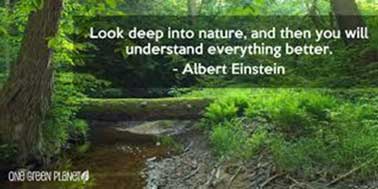 At the mature age of 29 years, I finally had the opportunity to attend university. I majored in psychology and minored in American literature, delving into great writers such as Henry James, William Faulkner, F. Scott Fitzgerald, Herman Melville, Mark Twain, Ernest Hemingway, Nathaniel Hawthorne, Ralph Waldo Emerson, and Henry David Thoreau.
At the mature age of 29 years, I finally had the opportunity to attend university. I majored in psychology and minored in American literature, delving into great writers such as Henry James, William Faulkner, F. Scott Fitzgerald, Herman Melville, Mark Twain, Ernest Hemingway, Nathaniel Hawthorne, Ralph Waldo Emerson, and Henry David Thoreau.
All these readings in the humanities convinced me of four things:
- All people are like me, sharing the same human frailty, suffering from the same sorrows and evils, and striving for meaning and happiness in spite of all their miseries.
- People are complex, and life is hard and complicated; therefore, there are no easy solutions to human problems without resorting to a higher, transcendental reality.
- Human society remains a part of the natural ecology because of our interrelatedness with other living things; without caring for the planet earth, eventually we will all perish.
- Human relationships with oneself, other people, nature, and God, are out of whack because of humanity’s greed and tremendous power to exploit nature and other people, particularly through science and technology.
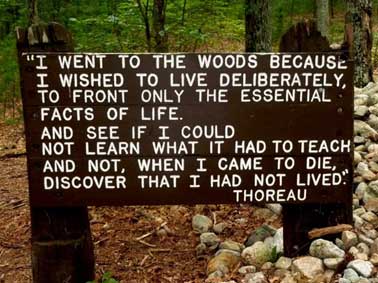 Therefore, it seemed to be that the only hope of finding a solution is to look for human universals or natural laws of what is good and right in all human beings. Such knowledge would help restore the balance in all these relationships and redirect humanity’s passions towards values that transcend egotism. These ideas were clearly contrary to the contemporary mental health practices of psychiatrists and psychologists, but they guided my research in graduate school and beyond.
Therefore, it seemed to be that the only hope of finding a solution is to look for human universals or natural laws of what is good and right in all human beings. Such knowledge would help restore the balance in all these relationships and redirect humanity’s passions towards values that transcend egotism. These ideas were clearly contrary to the contemporary mental health practices of psychiatrists and psychologists, but they guided my research in graduate school and beyond.
My Search for Positive Human Universals
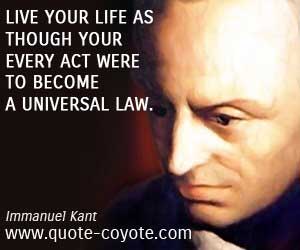 In the 70s, during my early years at Trent University, without knowing much about Kant’s deontological theory of morality or the innate deep structure of morality (e.g., John Mikhail’s [2011] Elements of Moral Cognition), I intuitively believed that we are made in God’s image and that there are a set of innate universal laws guiding us to live a good life, as long as we are not led astray by our greed and misguided ambitions.
In the 70s, during my early years at Trent University, without knowing much about Kant’s deontological theory of morality or the innate deep structure of morality (e.g., John Mikhail’s [2011] Elements of Moral Cognition), I intuitively believed that we are made in God’s image and that there are a set of innate universal laws guiding us to live a good life, as long as we are not led astray by our greed and misguided ambitions.
Therefore, my first research question in my research on humanity was: “What is universally good for human beings in good times and bad times?” That sounded like a reasonable research question, but my first human study was a total disaster.
The study was a massive survey consisting of several pages of open-ended questions and rating scales, exploring what was considered universally good for human beings. I mailed out a few hundred Human Universals Surveys to randomly selected participants, but not a single person completed it and returned it with the self-stamped envelope. A couple thousand dollars of research money went down the drain, but an important lesson was learned.
My second attempt at studying humanity’s universals was during the 80s. Benefitting from my last failure, I adopted the Implicit Theories approach to study meaning by first interviewing people face-to-face and asking them a simple open-ended question: “If money is not a concern, what is your ideal good life or meaningful life?”
The first stage of qualitative research was followed by quantitative research This project took several years to complete and was eventually published in 1998 (Wong, 1998).
This research shows that most people consider the following eight elements as important for the good life or meaningful life: general relationships, intimate relationships, achievement, acceptance of personal limitations, religious beliefs, self-transcendence, fairness (justice), and happiness (positive emotions). Happiness was removed from further analysis because it would confound the outcome measures of subjective wellbeing. My own research, and all subsequent research by others, have demonstrated that the seven sources of meaning are relevant in many cultures, and important for both enhancing wellbeing and reducing human suffering.
The most impressive finding of my Implicit Theories of the good life is that given the time to reflect and free choice without the concern of making money, most people exercise their freedoms responsibly by choosing healthy life goals, such as relating well to people, contributing to society, and seeking God’s help. In other words, these findings already contained important clues to crack nature’s code for positive mental health.
The Bruce Lee of Psychology
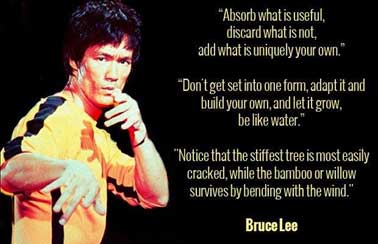 I was able to crack nature’s code because I refused to be confined to any silo and was open-minded in my search for nature’s way of what is good for all people, regardless of their race, religion, and socio-economic conditions.
I was able to crack nature’s code because I refused to be confined to any silo and was open-minded in my search for nature’s way of what is good for all people, regardless of their race, religion, and socio-economic conditions.
I consider myself the “Bruce Lee of Psychology,” because I am a misfit in any existing school. Being an outsider has caused me a great deal of problems in my psychology career, but I could not help being different for the following reasons:
- I am a bi-cultural person—raised in China, but living in Canada.
- I have some honest misgivings about every school of psychology because of my different cultural background and personal history.
- I have the instinctive desire to expand and absorb the best from each school.
- I am by nature an integrative maverick, trying to create a coherent framework that works for most people.
- I have practiced and taught my integrative approach to psychology for many years; each year, my students have found it more helpful than any single therapeutic modality.
- Many of my clients have tried all kinds of therapies; they have come to me as their last resort.
- I feel sad for being ostracized, but I also feel very good for remaining true to my core values and integrative vision for a meaning-centered and purpose-driven life.
- American Psychologist (Proctor & Vu, 2019) has recently advocated the path of collaboration and integration among different approaches to psychology. I am glad that I am a pioneering trailblazer.
What is Nature’s Solution to our Mental Health Needs in a Nutshell?
Nature’s solution consists of five interrelated parts as represented by this diamond, the symbol of PP 2.0, just as the smiley face is the symbol of PP 1.0. Diamonds are the hardest precious stone, and they can only be produced naturally through high pressure and heat over a long period of time. By the same token, we can become our best only through enduring hardships and overcoming suffering.
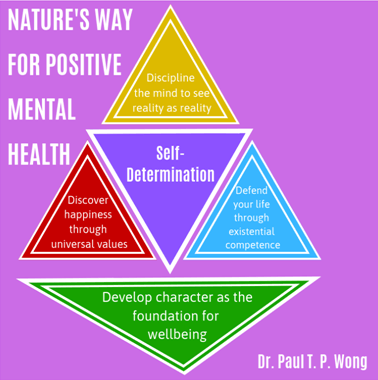
1. The Virtue of Responsibility
As human beings, we all have our responsibilities and duties in order to be productive members of society and become our best to serve the common good. This occupies both the center (in self-determination) and the foundation (in character development).
2. The Basic Need for Mental Discipline
In order to adapt well to the world, we all need to develop the mental discipline to look at the world as it really is, as practiced in mindful meditation (Kabat-Zinn, 2013; Nguyen & Thich, 2019); focus on what is meaningful in each situation, as practicing in developing the meaning mindset (Wong, 2012a); and see things in polarity, as practiced in dialectical thinking to avoid extremes (Wong, 2016).
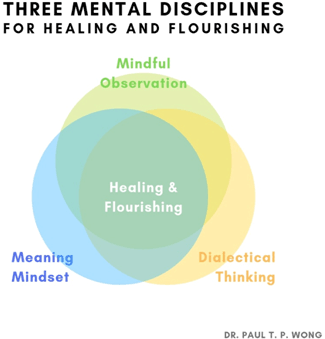
3. The Basic Needs for Positive Mental Health
We all need to fulfill our essential needs for meaningful work, loving relationships, and spiritual faith—the Golden Triangle. Since the era of hunting and gathering, these three principles have been important in bringing happiness and harmony to people in all kinds of hardships and adversities. In the modern era, with various scientific and technological advances, these three basic spiritual needs remain essential for our mental health. The literature supporting these three factors is enormous (e.g., Koenig, 2005; Pargament, 2013; Simpson & Rholes, 1998; Wong, 2012b).
Recently, Katz (2018) has convincingly argued that the spiritual worldview of indigenous healing psychology needs to be integrated in mainstream psychology, because spirituality needs to work “in harmony with the physical, emotional, and mental dimensions of human nature” (p. 276).
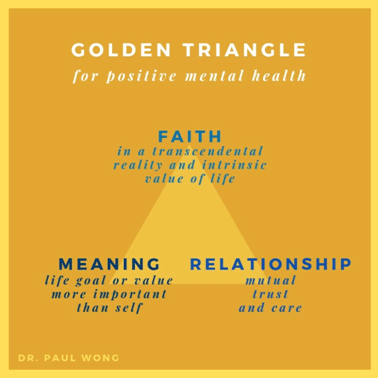
4. The Basic Strengths for Resilience
Life is hard. We all need to protect and fortify ourselves with the courage to face whatever hardships or misfortunes that come our way and accept whatever cannot be avoided or changed. We also need to tap into our meaning-making capacity to transform negatives into positives. These three protective skills form the Iron Triangle. We need to remember Peck’s warning that most disorders result from trying to avoid suffering and painful emotions. We would be better off if we face life with the defiant power of the human spirit, accept the fact that life is full of suffering, and learn to transform defeat into victory, sorrow into joy (Wong, 2019c).
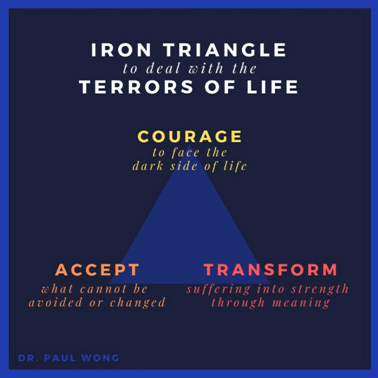
5) The Practical Wisdom of Dialectics
We need the practical wisdom of seeking balance and moderation with the skills of Yin-Yang dialectics in every situation and every relationship. Whatever we value and pursue, whatever the outcome, if we think about the opposite, we will be able to achieve the golden mean.
The 12 natural rules for positive mental health are all subsumed in the above modules. The subsequent article will explain why the 12 natural rules are both the necessary and sufficient conditions for our healing and flourishing.
A Summary of How I Cracked Nature’s Code for Positive Mental Health
- I happen to be the only person who has devoted a lifetime to researching this fundamental question: How can we find healing and flourishing in the midst of suffering? At age 82, I am satisfied with my conclusion that nature’s way is the best way, until someone can find a better answer.
- My discovery is the result of five decades of research in all the disciplines of psychology, from animal learning and developmental psychology, to social and personality psychology, as well as from reading thousands of books from both Eastern and Western literary sources regarding human history and the human condition.
- My discovery is the result of a lifetime of working with people from all parts of the world and from different faith traditions. This multicultural experience confirms the truth that all people are the same.
- My discovery is the result of having the courage to pursue the truth, even if I had to offend powerful individuals and pay the price of being marginalized by all existing schools of psychology.
- My discovery is the result of practicing what I preach, from God’s help by faith in searching for nature’s wisdom for mental health at a time when humans pose a threat to their own existence because of their arrogance and greed.
Conclusion
This paper argues the need for a paradigm shift towards nature’s holistic way of healing and thriving. This approach emphasizes respect for nature, for all life, and the need to live a balanced life in harmony with one’s true nature, others, and someone greater than oneself.
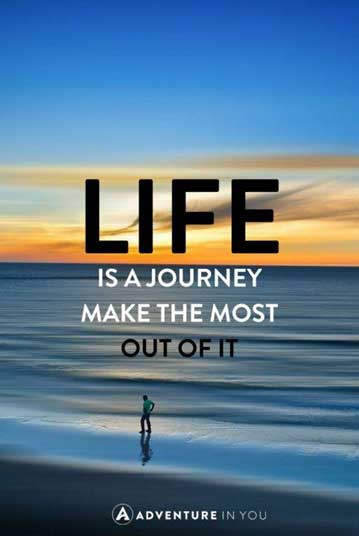
The journey of life can only be fully enjoyed by those who are well-prepared for the long and precarious journey. Character matters above all things; it is the fundamental requirement for living a meaningful and fulfilling life. They also need to develop the necessary life skills and practice the timeless universal values.
Out of many pathways, they choose the right path or life purpose that is most consistent with their own essence and the better angels of human nature.
They have the courage to face an unknown future and remain true to their core values and life goals, regardless of temptations and persecutions.
They have learned how to navigate troubled waters and weather the worst storms with wisdom and inner peace.
They enjoy the simple pleasures of spending time with their loved ones and friends, as well as the ecstasy of having overcome great difficulties.
They realize that life is hard and all people have their struggles. Therefore, they want to make life easier for others by being kind and fair at all times with compassion and courage.
They have learned to move beyond self-interest to serve the greater good and a higher purpose. They have the passion to work sacrificially to pursue their dreams and make the world a better place. In their humility, they become connected with the human family, nature, and transcendental reality.
Those who only want to live an easy and enjoyable life without hard work and hardships, and those who think that they already know everything there is to be known, are bound to be disappointed and miserable. Therefore, try to understand and embrace nature’s way of positive mental health as presented here.
References
Covey, S. R. (1989). The 7 habits of highly effective people: Powerful lessons in personal change. New York, NY: Free Press.
Frankl, V. E. (1985). Man’s search for meaning. New York, NY: Simon & Schuster.
International Network on Personal Meaning. (2019, April 1). A new narrative is needed to combat the sharp rise in teen suicide, drug overdose and depression. Cision: PR Newswire. Retrieved from https://www.prnewswire.com/news-releases/a-new-narrative-is-needed-to-combat-the-sharp-rise-in-teen-suicide-drug-overdose-and-depression-300821480.html
Kabat-Zinn, J. (2013). Full catastrophe living: Using the wisdom of your body and mind to face stress, pain, and illness (Revised ed.). New York, NY: Random House.
Katz, R. (2018). Indigenous healing psychology: Honoring the wisdom of the first peoples. Rochester, WT: Healing Arts Press.
Koenig, H. G. (2005). Faith and mental health: Religious resources for healing. West Conshohocken, PA: Templeton Press.
Mikhail, J. (2011). Elements of moral cognition: Rawl’s linguistic analogy and the cognitive science of moral and legal judgment. New York, NY: Cambridge University Press.
Nguyen, A.-H., & Thich, N. H. (2019). Walking meditation: Easy steps to mindfulness. Boulder, CO: Sounds True.
Pargament, K. I. (2013, March 22). What role do religion and spirituality play in mental health? American Psychological Association. Retrieved from https://www.apa.org/news/press/releases/2013/03/religion-spirituality
Peck, M. S. (1978). The road less travelled: A new psychology of love, traditional values and spiritual growth. Oxford, England: Simon & Schuster.
Peterson, J. B. (2018). The 12 rules for life: An antidote to chaos. New York, NY: Random House.
Proctor, R. W., & Vu, K.-P. L. (2019). How psychologists help solve real-world problems in multidisciplinary research teams: Introduction to the special issue. American Psychologist, 74(3), 271-277. https://doi.org/10.1037/amp0000458
Seligman, M. E. P. (2002). Authentic happiness: Using the new positive psychology to realize your potential for lasting fulfillment. New York, NY: Free Press.
Simpson, J. F. & Rholes, W. S. (1998). Attachment theory and close relationships. New York, NY: Guildford Press.
Wong, P. T. P. (1998). Implicit theories of meaningful life and the development of the Personal Meaning Profile. In P. T. P. Wong, & P. Fry (Eds.), The human quest for meaning: A handbook of psychological research and clinical applications (pp. 111-140). Mahwah, NJ: Erlbaum.
Wong, P. T. P. (2009). Existential positive psychology. In S. J. Lopez (Ed.), Encyclopedia of positive psychology (Vol. 1, pp. 361-368). Oxford, UK: Wiley Blackwell.
Wong, P. T. P. (2011). Positive psychology 2.0: Towards a balanced interactive model of the good life. Canadian Psychology, 52(2), 69-81. https://doi.org/10.1037/a0022511
Wong, P. T. P. (2012a). The meaning mindset: Measurement and implications. International Journal of Existential Psychology and Psychotherapy, 4(1), 1-3. Retrieved from http://journal.existentialpsychology.org/index.php/ExPsy/article/view/181/143
Wong, P. T. P. (Ed.). (2012b). The human quest for meaning: Theories, research, and applications (2nd ed.). New York, NY: Routledge.
Wong, P. T. P. (2016, October 18). The good life through polarity and transcendence (Part 1 of 2). The Virtue Blog. Retrieved from https://thevirtueblog.com/2016/10/18/the-good-life-through-polarity-and-transcendence-part-1/
Wong, P. T. P. (2017, May 16). Courage, faith, meaning, and mature happiness in dangerous times. Positive Living Newsletter. http://www.drpaulwong.com/inpm-presidents-report-may-2017/
Wong, P. T. P. (2019a, May 7). Learned helplessness or learned resourcefulness? Dr. Paul T. P. Wong. Retrieved from http://www.drpaulwong.com/learned-helplessness-or-learned-resourcefulness/
Wong, P. T. P. (2019b). Assessing Jordan B. Peterson’s contribution to the psychology of well-being: A book review of 12 Rules for Life. International Journal of Wellbeing, 9(1), 83-102. https://doi.org/10.5502/ijw.v9i1.829
Wong, P. T. P. (2019c, May 14). Why I choose to develop the positive psychology of suffering (PP 2.0). Dr. Paul T. P. Wong. Retrieved from http://www.drpaulwong.com/why-i-choose-to-develop-the-positive-psychology-of-suffering-pp20/
[1] Read more at https://www.brainyquote.com/quotes/albert_camus_104177

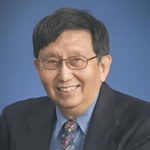
 Meaning Conference 2025 will be the INPM’s first in-person conference with a virtual option after the pandemic.
Meaning Conference 2025 will be the INPM’s first in-person conference with a virtual option after the pandemic.